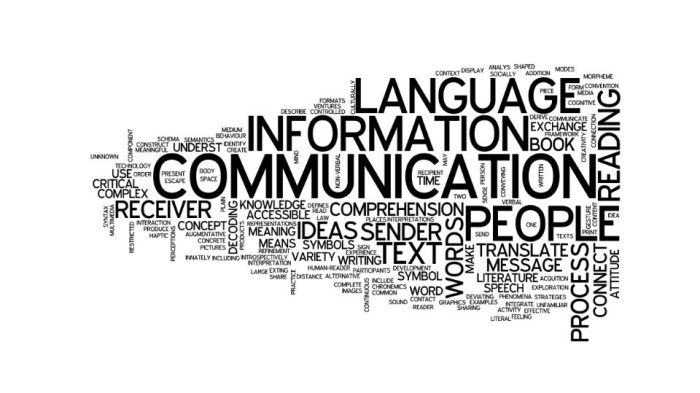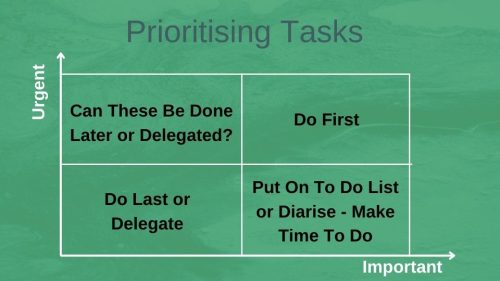How to manage expectations at work are essential skills to learn no matter what you do. Manage expectations well and you will be easier to work with, colleagues will like you more – because you don’t let them down – and you are perceived as:
- more professional
- a team player
- better at your job
These perceptions mean you are also more likely to be promoted.
This Article Covers:
When you need to manage expectations
- Think ahead
- Find out why
- Plan ahead
- Set clear expectations upfront
- Regularly communicate
Watch on YouTube
Listen on Podcast
When you need to manage expectations
When you are working in any business, there are so many people that you will need to work with:
- Your manager
- Your team members
- A leadership team.
- Colleagues from other teams and departments
- Customers
- Suppliers
- External investors and other stakeholders
And when you are working with them or delivering work or products to them or getting work or products from them, you will need to manage expectations. It is impossible to escape setting expectations when working in any kind of team. The better you manage expectations, the more benefits you will get doing your role.
So the five steps are:
- Think ahead.
- Find out about why you are being asked to do the work.
- Plan ahead
- Set expectations.
- Regularly communicate until the work is finished.
Sounds easy when it is a simple 5 point list – in my experience, putting it into practice is where too many people fall down. And when you have a team to manage, you have a lot more moving parts to think about and a lot more people’s expectations to manage.
How To Manage Expectations: Think ahead
When managing expectations, when someone asks for a piece of work, you must give yourself space to mentally think ahead and work out what you already have to deliver and how easy it would be to fit this new piece of work in. If you can’t do this on the spot, don’t commit to anything before you have thought through the implications of saying yes. If is a simple piece of work and you are not that busy, then it may be a no-brainer to say yes on the spot. If the work is more complex or you are busy, then I would suggest you find out more before you say yes.
An example of your response might be:
So just to confirm, you want an analysis on Customer X by Friday 3pm and you want to cover points a, b, and c. (You are re-confirming you understand what is needed)
Can you give me 10 mins and I will get back to you as to when I can deliver this? Before you go, I have a couple of questions…
How To Manage Expectations: Find out why you are being asked to deliver a piece of work
Finding out why you are being asked to do something is a really important step that many people miss, or they don’t feel confident enough to ask when trying to manage expectations. If you don’t find out more, you are making it really hard for you to prioritise your work effectively or that of your team.
I would suggest you find out:
- How your work fits into the bigger picture
- What deadlines the person asking you for the work is under
- Where or who initiated the work if it’s not the person you are talking to.
I have also been amazed by how many requests and projects are not as urgent as they first appear to be once you start asking a few questions. If asking a few questions gives you more time to do the work practice – that is a pretty good benefit straight away.
Secondly, you can often do a better job if you understand how the work you produce is going to be used. You can tailor your output for instance. This helps the other person and their perception of you improves. Another benefit.
Asking questions in the right way is important. You want to make sure you come across as being helpful rather than difficult while still getting the information you need.

An example might be saying:
“It would really help me to understand a bit about the project you are doing so I can better tailor what I produce for you. What are trying to achieve?”
Rather than saying:
“I need you to tell me a bit more about the project you are doing”.
Both achieve the same result. The first is positioned as you trying to be even more helpful, the second is open to many interpretations, not all of them positive.
Other example questions could include:
- Again to help me put together exactly what you need, can you tell me how you are going to use what I produce in your project or work?
- We are super busy at the moment and I know you have asked for this work back by Friday. What deadlines are you working to? I may be able to rejig some work around, so we help you meet them?
- Is this your project and if not, who is driving it?
If you are confident or have a good relationship you can ask much more direct questions. Even when in this situation, I still find positioning the questions as helping the other person gets you a lot more information and goodwill. Work out your way of finding out more about why you are being asked to do the work.
Managing Expectations: Plan ahead
Now you know more about the context of the work you are being asked to do, if it much easier to prioritise this work against all the other tasks, activities, and projects you or your team are currently working on.
I have always found it useful to categorise activities and projects into what is urgent and what is important.

Using a grid like this can be super helpful. A lot of urgent tasks can easily drown out the really important but less urgent tasks. Plan out which activities and tasks you need to deliver on and by when against your capacity to deliver. Decide how you can fit this new request into the overall workload you have.
You are now in a position to set expectations.
How To Manage Expectations: Set Clear Expectations Up Front
When managing expectations you must be very clear when you initially set expectations. Be clear on what you are going to deliver and by when. If you are meeting the other persons initial request or expectation, then this is pretty easy – you are effectively saying yes, I can do what you ask. If you can’t meet their initial request or expectations, then it is really important that you explain WHY you can’t deliver as requested.
For example:
“I can deliver the customer X analysis as you have requested. I am very busy with 4 other customer analysis currently, all part complete and I need to deliver these between now and Thursday 5pm. This means I can only start working on the Customer X analysis on Friday morning and finish Monday lunchtime.
I know you want this by the end of Friday and that the deadline for your project is the end of Thursday. Would Monday lunchtime work okay for you. I can share some of the preliminary work on Friday afternoon if that would help.”
By explaining why you can’t meet their initial request, you are demonstrating you are not being difficult or lazy and you are doing your best to accommodate them. This all helps maintain or build your relationship with them. And even more important, when you are clear and realistic in setting expectations, then they can plan and be confident you will deliver on those expectations.
When setting expectations it is so much more important that you be realistic rather than nice. Working with a person that sets clear expectations and then consistently delivers against those expectations is great. Even if the expectations set don’t match my original request.
The worst situation is working with a person that keeps missing deadlines or keeps giving your last minute surprises. This makes it very hard to plan what you can do to hit your own deadlines. Give as much certainty as possible, even it if doesn’t hit the original expectations requested.
It can also be useful to put the expectations you have set into writing – a quick email for instance. This gives both parties a written reference point that you can refer to if memories become a little hazy. This can head off or stop future disputes or misunderstandings.
Remember, be realistic and give yourself some wiggle room. Things always pop up so give yourself space to deal with the unexpected and still be able to deliver when you say you are going to.
Managing Expecations: Regularly communicate until the work is finished
The last step in managing expectations is to communicate regularly with your stakeholders until you hand over the completed work. Too few people are good at proactively communicating progress. This is one of the most important lessons I learnt in managing expectations well.
Even if the project or work is going well and you are going to deliver it on time, touch base and give an update. Use your judgement – if it a small piece of work, that is not that important and you will deliver it within a day, then just deliver the work. If you are working on a substantial piece of work, particularly if it is important, give regular updates. A quick phone call or email every couple of days would really help manage expectations.
By giving updates you are communicating through your actions that you haven’t forgotten about the work, you are progressing it and that you will hit the deadlines you have set. This proactively stops the other person chasing you, while creating goodwill. And there will be times that you can’t deliver to the original deadline set, even though you have planned out the work and given yourself wiggle room. Pick up the phone or go see the person and explain why this is the case and set a new deadline.
The most important thing you can do is tell them as early as possible so they can plan to meet their deadlines accordingly. No-one likes surprises. And even worse, not getting what you were expecting at the deadline.
Staying silent is the best way to annoy the other person and trash your reputation with them. Pick up the phone and explain what is happening and why. The other person may not like it. They will be grateful that you told them so they can adjust their plans accordingly and manage expectations of their stakeholders.
So whether you are on schedule to deliver, and definitely if you are not on schedule, keep communicating progress to your stakeholder until you have delivered the work.
In summary
Managing expectations is a really important skill to improve. The approach and tips shared in this video has helped me in my career and will help you.
Remember when managing expectations:
- Don’t forget to ask questions so you can prioritise the request effectively.
- Plan out how you are going to deliver the request and then set expectations.
- Always keep your stakeholder informed of progress until you have delivered.
And lastly, many people understand the theory of managing expectations but don’t put the steps into practice. Don’t be like these people. If you are not already taking these steps, put them into practice consistently. Your happiness and career will thank you for it.

Managing expectations is a critical skill to keep working on improving. The same piece of work can be amazing or terrible depending on how you set and manage expectations. Managing expectations is a proactive activity – you must keep thinking about who might be affected by this or that task or project changing. The aim is avoid surprises for as many people as possible.








